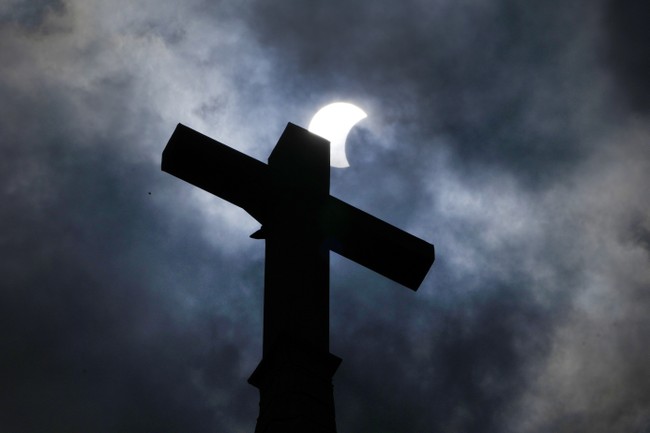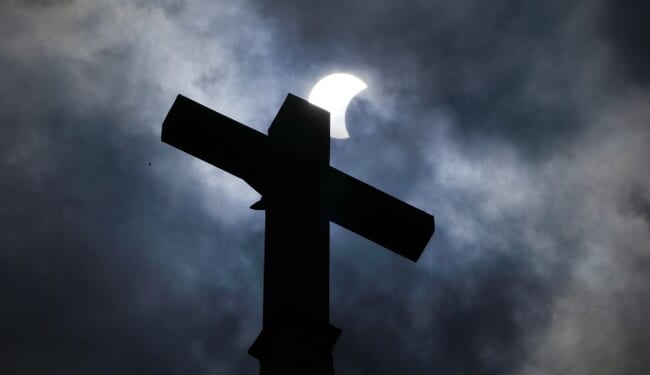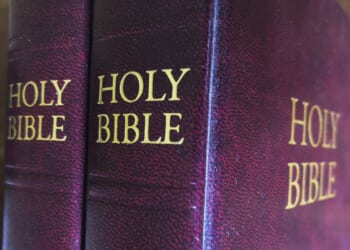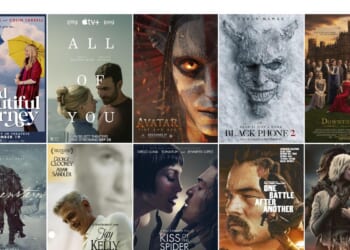
After a week with monster-hunters and a couple of the monsters they hunt — and two days with a nasty cold that practically blinded me! — I decided it was time to recommend some non-woke books appropriate for the end of Spooky Month. Not everything has been corrupted by the contemporary publishing industry; the spirits of Tolkien and Lewis live on.
Some of these books are classics; some serious, some funny; many are written by artists who can’t get their work published in the mainstream industry. But they can all still tell a story straight, about courage, sacrifice, and the victory of light over darkness. They remember that horror isn’t about glorifying evil; it’s about recognizing it so that goodness can shine more clearly.
These are the stories that remind us what we’re fighting for, and why fear itself can become holy when it drives us toward truth.
Dracula by Bram Stoker
Let’s start with the classic vampire novel. Before Dracula, English literature already had a rich vampire vein, beginning with that famous “Year Without a Summer” when Percy Bysshe Shelley, Mary Shelley, and Lord Byron rented a cottage in Switzerland. From that stormy retreat came both Frankenstein and Dr. John Polidori’s The Vampyre — the first modern vampire tale. Stoker based his story on that work as well as several others, historical records about the Transylvanian ruler Vlad Dracul, and his own haunted Irish past filled with stories passed down from his family.
Almost every vampire trope since (except the stomach-turning sparkle) can be traced back to Stoker’s work. But Dracula is more than a gothic adventure; it’s a moral and spiritual epic. Its heart beats in the courage of Mina Harker, a woman of faith, intellect, and loyalty who puts today’s “girl bosses” to shame. Around her stands a band of men as steadfast as any in Greek myth, united not by lust or power but by love, friendship, and conviction.
Told through letters and journals, the story demands a little more patience from modern readers, but it rewards them richly. In the end, Dracula endures not for its horror, but for its hope: that evil can be named, faced, and driven out by those who still believe in truth.
Till We Have Faces by C. S. Lewis
Lewis called this his best book, and it’s easy to see why. A retelling of the myth of Cupid and Psyche, it transforms pagan longing into a profound meditation on love purified by truth. Through the proud, wounded voice of Orual, Lewis shows how even jealousy can become a road to grace when stripped of self-deception.
It’s not an easy read, but it’s a beautiful one, a story of divine love seen through human blindness, and of a soul learning at last to speak honestly with God.
The Night Land by William Hope Hodgson
One of the strangest and most haunting works of early science fiction. Set millions of years in the future, after the sun has died, humanity survives in a single fortress surrounded by unending night and monstrous things that whisper beyond the walls.
It’s dense and archaic in style, but beneath that lies a vision of endurance as prayer, a love story and a battle for the soul of mankind told through unimaginable darkness. You could call it mythic proto-pulp: a bridge between Paradise Lost and Lovecraft, written with the moral gravity of a spiritual epic. Few books better capture what it means to hope when there is no reason left to.
The Screwtape Letters by C. S. Lewis
A masterclass in moral horror. Through the sly correspondence of a senior demon advising his apprentice, Lewis turns temptation itself into the story’s monster. Every page glints with dark wit and uncomfortable truth: the devil’s strategies are petty, plausible, and all too familiar.
It’s horror by way of theology, satire as armor, faith as counterspell. And it’s more relevant now than ever: many of the schemes Screwtape describes — distraction, pride disguised as compassion, the worship of comfort — have come to pass.
A good laugh, a sharper warning, and a reminder that the battle for the soul is fought in the smallest choices.
A Canticle for Leibowitz by Walter M. Miller Jr.
A post-apocalyptic masterpiece that feels eerily timeless. After nuclear war reduces civilization to ash, a humble order of monks preserves scraps of ancient knowledge — blueprints, notes, even shopping lists — treating them as holy relics. Across centuries, humanity repeats its cycle of pride, destruction, and fragile rebirth.
It’s grim, luminous, and profoundly redemptive. Miller reminds us that faith, not progress, is what keeps the light alive, and that sanctity can outlast empires.
Saint Odd by Dean Koontz
The final chapter in Koontz’s Odd Thomas series brings the gentle fry cook-turned-reluctant prophet to his destined end. Odd has always faced darkness with humility and humor, armed only with faith and a stubborn compassion for the lost. Here, those virtues reach their fullest measure.
Koontz distills his lifelong theme: that goodness, quietly lived, can confront any evil. It’s an ending both heartbreaking and full of grace, a modern saint’s tale wrapped in supernatural suspense.
Phantoms by Dean Koontz
Koontz has always stood apart from Stephen King for one vital reason: he believes the dragon can be slain. Where King often leaves readers in despair, Koontz insists that courage and faith still matter, that evil can be faced, fought, and overcome.
Phantoms is classic Koontz horror: a Lovecraftian menace consumes a small Colorado town, and a handful of ordinary people must stand against it. The terror is real, but so is the light that answers it. In Koontz’s world, decency itself is a weapon, and hope is never naïve.
Monster Hunters International (series) by Larry Correia
Correia’s flagship series begins with one of the most satisfying openings in modern pulp: a mild-mannered accountant discovers his boss is a werewolf, kills him in self-defense, and throws the carcass out an eleventh-floor window. It’s the perfect mission statement: monsters are real, evil can be confronted, and the man with courage and a clean shot still matters.
Owen Pitt, the protagonist, is transparently Correia’s self-insert, a gun-loving everyman who learns that moral conviction and competence are the ultimate superpowers. The series blends gun-porn detail with unapologetic moral clarity, mocking bureaucracy, nihilism, and moral relativism with gleeful precision.
But beneath the explosions and humor lies something older and nobler: the idea that the monster hunter’s duty is sacred. Correia writes as if civilization is worth defending, faith is worth keeping, and friendship forged in battle still counts as grace. It’s pulp with a purpose, and it wears its conviction proudly.
Love at First Bite (series) by Declan Finn
Declan Finn has carved out his own kingdom within modern pulp: conservative Catholic horror with teeth. Where most vampire fiction descends into brooding nihilism or romantic self-pity, Finn turns the genre on its head. His vampires aren’t tragic lovers; they’re predators, and his heroes fight them with holy water, humor, and a full catechism’s worth of ammunition.
Finn’s Love at First Bite series follows Marco Catalano, a man raised in the faith but hardened by experience, and Amanda Colt, his partner in both monster hunting and moral clarity. Their bond is marked not by lust or angst, but by loyalty and shared conviction. It’s rare to see such open embrace of faith and virtue in a genre long dominated by moral fog, and Finn makes it thrilling.
Beneath the action and snark lies something deeper: an insistence that evil is real, redemption is possible, and grace still works. In a publishing world that often mocks belief, Finn writes like a man who knows exactly Who wins in the end, and he’s having a blast watching the good guys get there.
The Thing from HR by Roy M. Griffis
Roy Griffis takes Lovecraft’s cosmic dread and does the unthinkable: he makes it funny, not by mocking the horror, but by mocking the bureaucrats who’d try to manage it. Imagine eldritch horrors meeting corporate memos, where interdimensional tentacle gods have to fill out HR forms in triplicate before devouring humanity.
Griffis’s genius in this series lies in his balance: he respects the mythic weight of cosmic evil while exposing the absurdity of modern institutions that think paperwork or DEI training can fix it. His humor has a sharp moral edge: the laughter of a man who knows the world is mad but refuses to surrender his sanity.
Beneath the satire runs a deep love of courage and competence, the same virtues that built the best pulp traditions. Griffis’s heroes don’t whine, and his villains never get the last word. In his hands, humor becomes an act of spiritual defiance, a way of saying that light still shines, even if it’s filtered through a fluorescent office lamp.
It’s the rarest kind of horror-comedy: smart, grounded, and good-hearted, written by someone who remembers that the human spirit — and a well-timed punchline — are both indestructible.
Death Masks by Jim Butcher
By the fifth entry in The Dresden Files, Jim Butcher had found the perfect balance between hardboiled grit and genuine faith. Chicago wizard Harry Dresden is battered, broke, and bone-weary, but he still fights for what’s right, even when right looks hopeless. In Death Masks, that fight turns explicitly spiritual: demons, fallen angels, and one very sacred relic — the Shroud of Turin — draw Harry into a battle that tests both his soul and his sword arm.
This is also where we see one of Butcher’s greatest creations in full: Michael Carpenter, the Knight of the Cross. Michael is everything Harry isn’t — married, grounded, serene — yet their friendship is the heart of the book. He wields Amoracchius, a holy sword forged from a nail of the Crucifixion, and his faith gives Dresden something he’s never had: a glimpse of grace.
Butcher’s world is brutal, funny, and filled with hard choices, but Death Masks reminds us that righteousness is not naivety and holiness is not weakness. It’s urban fantasy at its most human, where courage and conscience matter more than magic, and where friendship itself becomes a weapon against the dark.
Closing Reflection
Horror without hope is just rot. These writers remember that the cross still works, that courage still counts, and that even in the graveyard there’s laughter. Their stories don’t glorify the darkness; they drag it into the light and make it answer for itself.
Each of these books, in its own way, restores the oldest truth of the genre: that evil can be named, fought, and sometimes even redeemed. Read them with the lights on if you must. Better yet, read them with faith lit bright.
Editor’s Note: If you love this piece and want more content like it, there’s an easy way to support us. Join PJ Media and use promo code POTUS47 to get 74% off your membership.











